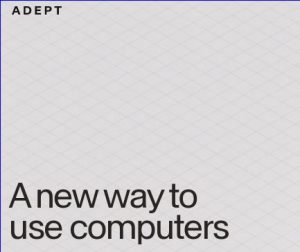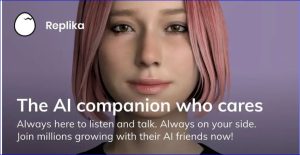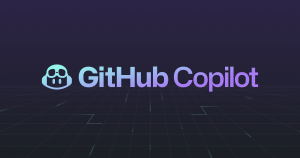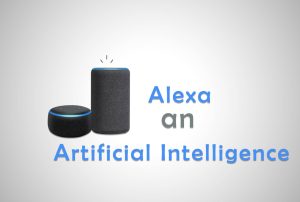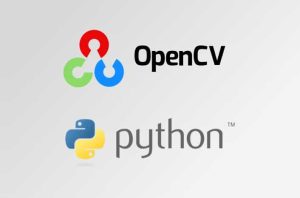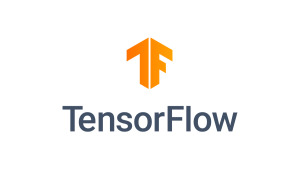When it comes toartificial intelligence, there has been a lot of progress and growth over the years. Most of this development has focused on expanding enterprises and industries.
Nonetheless, a number of businesses are developing artificial intelligence products suitable for personal use.
The list of the top 20 AI tools for 2023 includes a variety of capabilities and applications, such as natural language processing and predictive analytics, to help you choose the right tool for you.
Introduction to AI
Artificial intelligence, sometimes called AI, is the creation of computer systems capable of performing actions that normally require human intellect, such as learning, thinking, problem solving, and pattern recognition.
When it comes to artificial intelligence, there has been a lot of progress and growth over the years. Most of this development has focused on expanding enterprises and industries.
Nonetheless, a number of businesses are developing artificial intelligence products suitable for personal use. Several industries, including healthcare, banking, marketing, and transportation, have used AI in diverse ways, and it’s rapidly changing the way we live and work. Self-driving vehicles, virtual assistants, recommendation systems, fraud detection algorithms, and image recognition software are some examples of AI-driven technology. With all the advances in technology and information technology, artificial intelligence is considered the next big thing.
Types of AI tools
Machine learning platforms:
These tools use algorithms to find patterns in huge datasets, and then use those patterns to predict the future or make judgments.
They may be used for things like fraud detection, natural language processing, and predictive analytics.
NLP Tools:
Language translation, sentiment analysis, and speech recognition are just some of the activities that natural language processing (NLP) systems may perform by analyzing and understanding human language.
Computer vision tools:
These tools analyze photos and videos using deep learning algorithms, which allow them to perform tasks like object recognition, image classification, and face recognition.
Robotic tools:
With these tools, robots may be programmed and controlled to perform jobs like manufacturing, shipping, and customer service.
Speech recognition tools:
Speech recognition and synthesis technologies are used to record, understand and produce synthetic speech with a natural-sounding voice.
Virtual Assistant Tools:
Technologies for creating conversational interfaces that can respond to queries and perform activities include chatbots and virtual assistants. These tools make use of natural language processing and machine learning.
Fraud detection tools:
These programs use analytics and machine learning to detect fraudulent behaviors including identity theft and credit card fraud.
Customizable tools:
These tools use machine learning to give consumers personalized experiences, including product suggestions and content.
no code ai tools : no-code ai tools.
Benefits of AI tools
Here are some of the key advantages of using AI tools over regular ones.
- Higher efficiency
- Increased accuracy
- Lower costs
- Customization options
- Excellent customer service
- Improved decision-making
- Increased productivity
Top 20 AI Tools to Use in 2023
Below is a list of AI tools.
1. ADEPT
Adept is a machine learning research and product laboratory that develops general intelligence by empowering collaboration between humans and computers. This is advantageous for companies that want to learn from their data because it provides data analytics tools, predictive models, and automated reporting. Adept may integrate with current workflows and systems and leverage advanced machine learning techniques to provide accurate predictions and insights.
Based on the requirements and objectives of each organization, tailored pricing is offered by Adept.
Properties:
- Model forecasts
- Data analysis
- Automatic reporting
- Adaptation to up-to-date processes and systems
2. QUILBOT
Quillbot is an AI-powered writing assistant that provides tools for rewriting, summarizing and improving content. It may provide suggestions for improvements in sentence structure and writing style and uses machine learning techniques to find grammar and spelling errors. Students, writers, and corporations looking to increase the level of their written content may benefit from Quailbot.
Advantages:
- Can be used as a paraphraser.
- Has the ability to act as a grammar checker.
- Includes a built-in Summarizer.
- Quote generator.
3. Covariant
An AI-driven robotics platform called Covariant provides capabilities for automated coordination, manipulation, and object recognition. A variety of businesses, including manufacturing and logistics, can use it. Covariant uses machine learning algorithms to teach robots from their environment and adapt to new jobs and conditions.
Covariant also offers customized pricing for its users according to their needs.
Properties:
- Development of robotics using machine learning.
- Visual object recognition system.
- Flexibility to deal with various robotic programs.
- Adaptation to existing systems.
- Real-time analysis for alertness and improvement.
4. Bard
Arad’s writing assistant uses artificial intelligence to provide tools to improve the organization, consistency, and style of written material. Bard was recently introduced by Google and is currently only available to beta testers. It can detect grammar and spelling errors, and it makes recommendations for writing style and coherence improvements using machine learning methods. For writers, bloggers and companies who want to raise the level of their written content, Bard can be helpful.
Properties:
- Chatbot platform with AI.
- Natural language processing capability.
- Compatibility with messaging websites and apps.
- Chatbot behavior and design are adaptable.
5. ChatGPT
ChatGPT is an interactive AI assistant that answers user inquiries with relevant and personalized information. It can be connected to multiple communication platforms, including Facebook Messenger and Slack. ChatGPT uses sophisticated machine learning methods to decipher user questions and provide accurate and appropriate answers.
It’s a free tool to use.
Properties:
- Answers users’ questions with tailored and thorough information
- No word count is defined for content creation.
- programmed to reject unreasonable requests.
- Ability to remember details of previous interactions.
6. Bing AI
Bing Ai is another interactive assistant recently introduced by Microsoft. The Bing search engine includes several artificial intelligence technologies and capabilities called Bing AI. Artificial intelligence technologies give tailored suggestions, improve the search capabilities of images and video, and help increase the accuracy of search results.
Properties:
- Powered by AI technologies from Microsoft.
- Offers intelligent search results, image and audio recognition.
- Natural language processing.
- Used on many platforms and apps.
7. Replika
Replika is a chatbot with artificial intelligence (AI) that mimics human communication. The chatbot may offer emotional support, personal counseling, and even participate in philosophical debates. It’s built to learn from its interactions with people.
Properties:
- An AI-powered chatbot designed to offer convenience and companionship.
- Creates human-like conversations using machine learning and natural language processing.
- Provides consumers with personalization options.
8. Anthropic
Anthropic is a successful startup doing artificial intelligence research to develop “robust and interpretable machine learning systems.” The company’s technology aims to make the use of artificial intelligence more ethical and responsible while making it more transparent and clear.
Properties:
- Provides resources and technology to build ethical and transparent AI systems.
- There are instruments for assessing fairness, models for solving problems and deciphering results.
- Used by companies and researchers to make sure their artificial intelligence (AI) systems are ethical and open.
9. GitHub Copilot
GitHub Copilot | AI tools for developers
Copilot is one of the AI development tools, it was developed by Microsoft-owned Github.
10. Google Assistant
Google Assistant | AI Tools 2023
The voice-activated, AI-powered virtual assistant known as the Google Assistant was created by Google. Assistant users may use it to create reminders, send messages, and search for directions, among other things.
Properties:
- Google’s AI-powered virtual assistant
- Provides functions including voice-activated search, smart home control, and personalized suggestions.
- Different devices and apps are integrated into it.
11. Siri
Siri | AI Tools 2023
Apple’s AI-powered virtual assistant with speech recognition is called Siri. It is also one of the popular artificial intelligence assistants. Making phone calls, sending messages, and playing music are just some of the tasks that the assistant is designed to help customers with.
Properties:
- Siri on iPhone can announce calls, text messages, and more.
- You can use Apple Music Voice and Siri to play music on your iPhone.
- With Siri on your iPhone, manage your home.
- With an iPhone, use Siri, Maps, or a maps widget to find directions.
12. Alexa
Alexa | AI Tools 2023
The AI-powered Alexa-powered virtual assistant is an Amazon product. The virtual assistant is designed to assist users with a variety of activities, such as creating reminders, making calls, and managing smart home devices.
Properties:
- You can ask about current events and travia.
- Get cooking tips and ideas.
- You can play games and listen to music.
- Remind someone of a schedule or medication.
- Multilingual support.
13. Grammarly
Grammarly | AI Tools 2023
One of the best AI online writing tools is Grammarly. Grammarly is an AI-driven writing assistant that provides real-time suggestions for grammar and spelling corrections as users type. It may be integrated into many other programs, such as word processors, social networking sites and email.
Properties:
- Eliminates grammatical errors.
- Makes sure your spelling is accurate in the right context.
- Use punctuation correction for all your punctuation requirements.
Google docs and Google Chrome along with Microsoft word combination.
14. Jasper
Jasper AI | AI Tools 2023
Jasper AI | AI Tools Like Chat GPT
With generative AI platform Jasper, your team can create content uniquely tailored to your brand. With Jasper, you can create your own blogs, articles, books, scripts, and other types of content. All you have to do is choose a topic, fill out the form with your details, and Jasper will produce the content.
Properties:
- Create long texts with AI.
- Plagiarism Integrated Finder
- SEO Surfer integration for keyword optimization and research
- Support for the creation of AI wizard sentences.
15. OpenCV
OpenCV | AI Tools 2023
An open-source computer vision library called OpenCV provides several functions for processing both still and moving images. Robotics, tracking, and augmented reality are just a few of the applications for which the cross-platform framework can be used.
Properties:
- Open source library for computer vision.
- Provides features including face recognition, object recognition, and image and video processing.
- Used in a variety of research and applications of computer vision.
16. TensorFlow
TensorFlow | AI Tools 2023
The open-source platform ensorFlow is used to create and train machine learning models. The platform provides a number of features, such as pre-built APIs, data pre-handling tools, and a flexible architecture that can be used to build different types of models.
Properties:
- An open source machine learning library developed by Google.
- Provides capabilities including deep learning, neural network creation and model deployment.
- Used by companies and academics to create and implement machine learning models
17. Watson
IBM Watson | AI Tools 2023
IBM Watson | AI automation tools
IBM’s Watson is a collection of tools and services that support artificial intelligence. The platform provides several functions, such as predictive analysis, image and audio recognition, and natural language processing.
Properties:
- Predictive analytics, machine learning.
- Natural language processing.
- Used in a variety of fields, such as customer service, banking and healthcare.
18. DALL· E 2
DALL· E 2 | AI Tools 2023
DALL· E 2 | Ai-driven tools
OpenAI created the Dall-E image generator, which uses artificial intelligence. The program is designed to create unique and realistic visuals from written descriptions.
Properties:
- Through deep learning and natural language processing, OpenAI’s AI-powered image generation system can generate images from written descriptions.
- Used to create images for use in artistic and creative applications as well as for commercial purposes.
19. Remini
Remini – AI Photo Enhancer | AI Tools 2023
Remini – AI Photo Enhancer | AI-powered tools
Remini is an AI-driven program to improve and restore ancient images. The tool can improve image quality, eliminate blemishes and scratches, and add color to monochrome images.
Properties:
- An AI-powered image enhancement tool to enhance and recover low-resolution images.
- Accessible as a mobile app for iOS and Android devices.
- Can create realistic-looking avatars from photos.
20.AI Playground
Playground AI | AI Tools 2023
Playground is another free AI image generator where you can add instructions and create high-quality images or graphics for free. You can use these images in posts, blogs, and articles on social networks.
Properties:
- Dall-E2 image creation is provided for free.
- The prompt is automatically filled in using the desired art style.
- It can upgrade your photos for free.
- It saves images on the server.
- This is social media for images created by artificial intelligence.
Implementation of AI in the modern world (business tools in AI)
Here are some of the most common applications of Ai Tools in today’s world:
AI IN EDUCATION / AI RESEARCH TOOLS
Artificial intelligence (AI) is gradually making its way into education, helping to increase efficiency and placing a greater emphasis on students than on office or administrative tasks. It may be used to automate office procedures, provide intelligent content, personalize education, and offer voice assistants. It can also be used to monitor student data and create habits, lesson plans, reminders, study guides, flash notes, frequency or update, etc. to create a rich learning experience.
AI in e-commerce
To improve the consumer experience and reduce credit card theft, artificial intelligence technology is employed to build recommendation engines and virtual shopping assistants. Chatbots can interact with consumers in real time, and AI-driven assistants use natural language processing to make dialogue feel human and intimate. Two of the biggest problems businesses have in e-commerce are credit card theft and fake reviews. Artificial intelligence (AI) can help detect and address false reviews.
Lifestyle AI
Self-driving cars, spam filters, facial recognition, recommendation systems, and other aspects of AI have a significant impact on our lifestyle. Self-driving cars use object recognition to prevent accidents, spam filters to remove spam, facial recognition to identify and identify for secure access, and machine learning to educate computers to think and grow like people. To increase user engagement, recommendation systems collect user data and provide consumers with personalized recommendations. Almost all sectors make extensive use of these applications.
AI in navigation
To increase the accuracy, effectiveness, and safety of navigation and location-based services, artificial intelligence (AI) is increasingly employed in navigation. Real-time traffic data is analyzed by AI algorithms to determine the most efficient routes, predict vehicle maintenance requirements, and make personalized suggestions for attractions along the route. While AI-powered autonomous vehicle technology has the potential to revolutionize transportation by reducing accidents, increasing efficiency, and removing the need for human drivers, it can also provide real-time updates on traffic, weather, and other factors.
AI in healthcare
By offering a wide range of possible applications to improve patient outcomes, reduce costs and increase efficiency, AI is transforming healthcare. AI algorithms can identify diseases, interpret medical images more accurately than people, and help design new drugs. Chatbots can help experiment patients and can offer answers to frequent health-related problems, while AI-powered virtual nurse assistants can monitor and support patients around the clock. AI may be used to develop individual treatment regimens, track the course of diseases, and identify people who are at risk of developing certain diseases.
AI in Social Media
Artificial intelligence is becoming increasingly significant on social media platforms, offering a variety of applications to improve user experiences and increase platform efficiency. AI algorithms can be used to tailor information and advertisements to users, identify fake news and hate speech, and suggest accounts to track those relevant to them. Artificial intelligence can help filter spam and deliver content by highlighting potentially harmful information for evaluation. AI-powered chatbots can also be used to offer real-time customer service and respond to consumer inquiries.
AI in Marketing / Ai Design Tools
By offering a wide range of applications to improve targeting, personalization, and efficiency, AI is revolutionizing the marketing sector. Huge amounts of data may be analyzed by AI systems to find trends and preferences, enabling targeted advertising and personal marketing efforts. AI-powered chatbots may also offer personalized customer service and respond to common inquiries, freeing up marketing workers to concentrate on harder jobs. Artificial intelligence can also help generate leads, predict leads, optimize prices, and position products, among other tasks.
AI AS CHATBOTS
A variety of businesses are seeing an increase in the use of AI-driven chatbots, which offer a quick and cost-effective way to respond to customer questions and offer help. Chatbots offer personalized help and support 24/7 by understanding and responding to user inquiries through natural language processing and machine learning techniques. Chatbots can help with a variety of activities, such as organizing meetings, product suggestions, and answering frequently asked questions. Chatbots can help organizations reduce costs by processing a large volume of inquiries without the need for human participation, in addition to increasing customer happiness.
Faq
What are the most common AI tools on the market?
Depending on the sector, various AI tools are more commonly used, but some of the best known are Chat GPT, Watson, Google Assistant, Siri, Alexa, Grammarly, OpenCV and SEMrush.
How do I choose the best AI tool for my company’s needs?
Considering your business goals, the type of data you have, and the difficulty of the tasks you want the tool to complete will help you identify the ideal AI tool for your company’s requirements.
Are AI tools challenging for those who don’t have a technical background to use?
While some AI solutions may need technical knowledge to configure and install, many manufacturers are trying to make their tools more accessible and user-friendly.
How much will AI tools usually cost?
The price of AI tools can vary greatly depending on the seller, the capabilities offered, and the difficulty of the jobs they are able to perform. Some tools may cost thousands of dollars per month or more, while some may be offered for free or with a freemium pricing model.
Can AI technologies be integrated with other business software?
Yes, APIs, plugins, or custom interfaces can often be used to integrate AI technologies with other business applications. The specific requirements, however, will vary depending on the equipment and software you use.
Do I need a dedicated data scientist on staff if I want to use the right AI tool?
A special data scientist is not always required; However, it may help harness the benefits of AI tools.
What are AI tools?
Artificial intelligence tools are machine learning applications and tools that are trained on large datasets to perform a specific task. For example, GitHub Copilot is trained on code in open source apps to create an AI tool that can generate code.
What is the best artificial intelligence tool? (What are some of the main tools in artificial intelligence?)
There are many excellent AI tools on the market depending on your use case and needs. Some of the most popular AI tools are: ChatGPT, Copilot, DALL-E, BARD, etc.
What is the most popular artificial intelligence?
As of 2023, OpenAI’s ChatGPT is the most popular AI tool online and worldwide. ChatGPT is an artificial intelligence tool for text-based natural language processing, which means users can ask ChatGPT any question they would best try to answer given the datasets in which it has been trained. Which makes it very easy to use. It crossed more than 5 million users within days of launch.
summary
In summary, the rapid advancement of artificial intelligence (AI) has yielded a wide range of tools that have revolutionized a number of areas of effort and spurred creativity. The top 20 AI solutions expected to dominate the market in 2023 show how AI has huge potential to boost productivity, customer happiness, and overall performance.
These artificial intelligence (AI) technologies provide a variety of features and applications that are changing the way people work and interact with technology, from image recognition to speech analytics, chatbots, and recommendation systems. It’s possible that even more powerful tools will emerge as AI evolves, opening up countless opportunities for both corporations and individuals.


